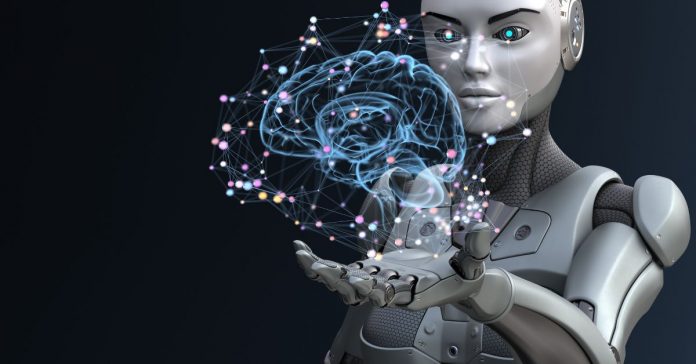
Artificial Intelligence In Education Is More Than Science Fiction
In education technology, Artificial Intelligence is more than science fiction. It can change education indefinitely. Educational AI and the larger area of educational technology (EdTech) encompass much more than language acquisition. Following the Covid-19 pandemic, educational technology services such as Duolingo, Udemy, and Coursera exploded in popularity. The industry around these major organizations continues to develop dramatically as individuals, young and old, embrace digital change.
Institutions use digital transformation to retire outmoded ways of thinking and use technology to improve institutional performance. The desire of the younger generation to profit from technology to help them reach their goals more rapidly has led to the rise of AI-based solutions. In general, AI in education focuses on diagnosing a student’s capabilities through diagnostic testing and then creating a tailored curriculum based on each student’s specific needs.
What does AI education entail?
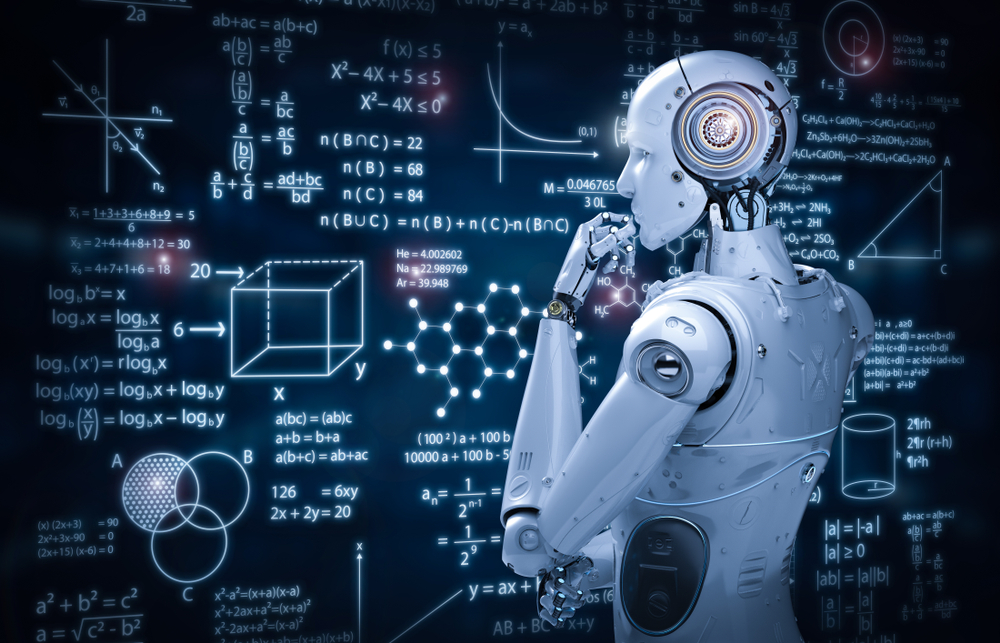
In many educational institutions and technology-related industries, machine learning (ML) and Artificial Intelligence (AI) are considered critical in the growth and innovation accelerators phase. Despite the fact that AI has been there for a while in EdTech, the industry has been slow to adopt it. Educators are increasingly resorting to virtual learning technology as the pandemic changes dramatically.
Since the invention of computers, technological advancement has benefited learning. With groundbreaking ideas like AI education, one may envisage a world where a human interacts with robots to complete tasks. Although it is theoretically possible for a system to identify your goals and fulfill them, its applications are currently available.
AI’s Benefits for the EdTech sector
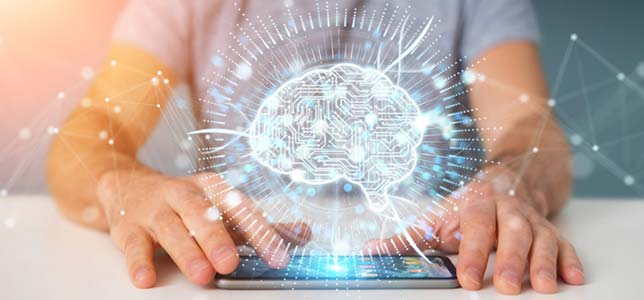
AI has been utilized in education for various teaching methods, with some incorporating built-in stealth evaluations that students are unaware of. It can revolutionize education with new AI tools. The robotic learning platform has enhanced the learning experience for students in elementary and secondary schools. Innovative AI technologies have given teachers, students, parents, and schools a new viewpoint on education.
AI in education has several implications for both students and teachers:
- One can access learning resources at any time and from any location.
- AI automation can help with time-consuming and tedious jobs like record keeping and grading multiple-choice assessments.
- Chatbots can react to often asked questions.
- AI instructors and chatbots might be ready at any time to answer inquiries.
- Through tailored programs, learning may be altered and adapted to each student’s goals and talents.
Connecting AI with Education:
1. The synergy between educators and AI
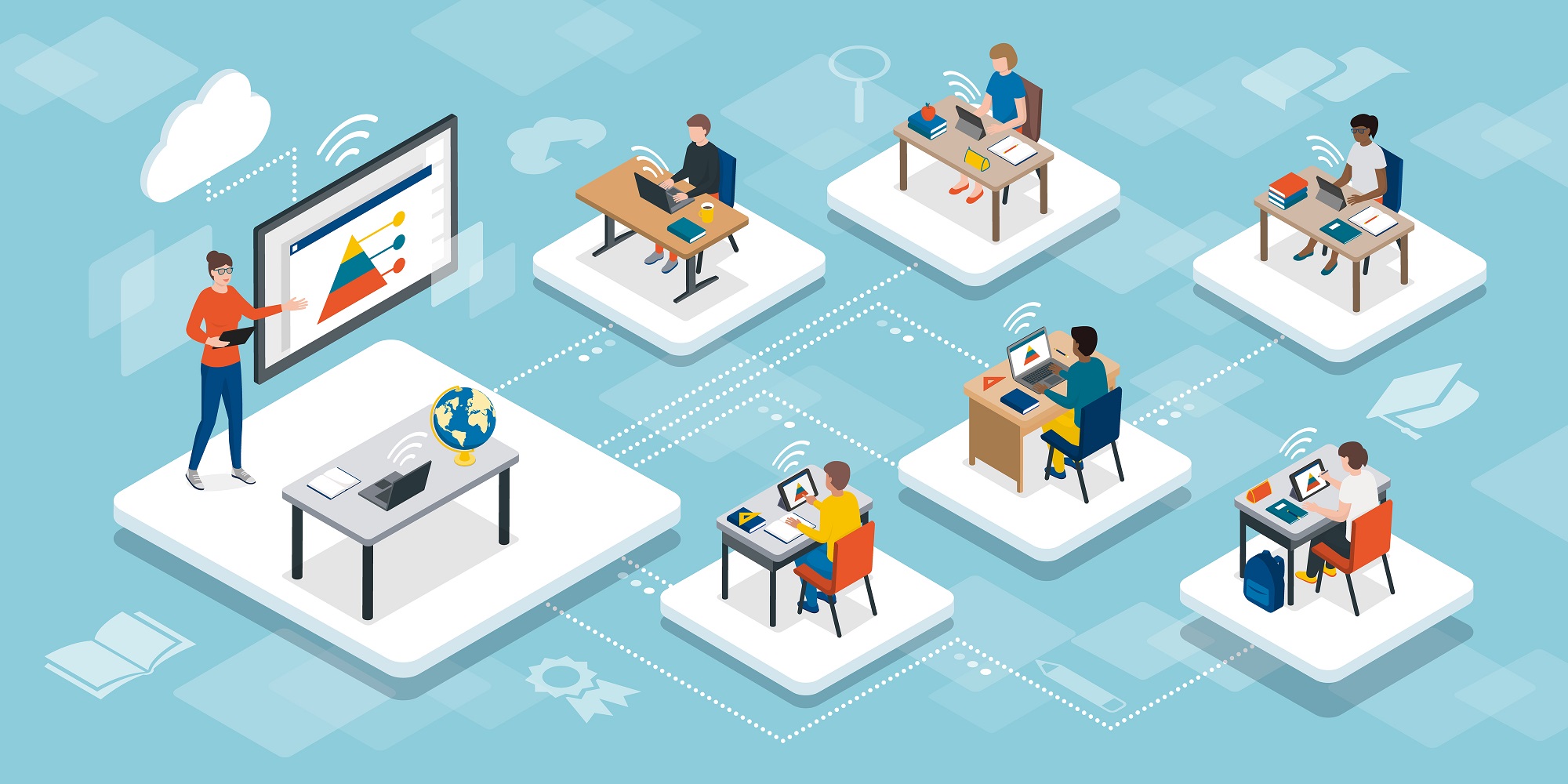
In education, the purpose of AI is to enable robots to collaborate with teachers to generate the best possible results for pupils. As AI educational solutions develop, the objective is for AI to help cover learning and teaching gaps, allowing schools and instructors to do more than ever before. Teachers have the freedom to employ AI in education to improve the relevant procedures, modify the art of learning, and minimize the administrative labor to concentrate on understanding and adaptability, two human skills that computers lack. Outside of the classroom, AI technology might assist students in improving their abilities and correcting areas that need improvement.
2. Accessibility to resources is unbiased
Artificial intelligence technology may make worldwide classrooms more accessible, including for people who speak several languages or have visual or hearing disabilities. By removing obstacles, AI can aid in the separation of schools and grade levels. It also allows youngsters who are unwell or need to learn at a higher level or on a topic that isn’t provided at their school. Furthermore, AI makes it easier for children to figure out what works best for them without waiting for a teacher.
3. Optimize administrative activities

AI is a technology developed to assist people in automating numerous operations in various fields, including education. Multiple management and organizational duties necessitates a significant amount of work. As AI takes over administrative tasks, instructors will have more time to focus on each pupil. AI can swiftly do these tasks while also advising how to fill any knowledge gaps.
4. Produce Adaptive Content to Increase Engagement
AI can boost the ability to lift up the personalized digital learning environments, including digital textbooks, study guides, bite-size lectures, etc. It also assists in creating and updating lesson content, keeping it up to date, and personalizing it for different learning curves. AI has its unique characteristic property to bless each student with a unique and a personal touch. A personalized approach such as individualized timetables, bespoke tasks, digital technology, etc. A well-crafted personalized suggestion to a child makes him/her feel a sense of belongingness. As a result, the child involves himself/herself to a greater interest, along with a keen enthusiasm about the studies and plans.
5. Customize learning
Artificial Intelligence helps determine what a pupil knows and doesn’t know. It facilitates creating a personalized study plan based on an individual’s knowledge gaps. AI makes studies more successful by tailoring them to the demands of individual pupils. Many organizations train their AI systems as per the viewers’ reviews. The technology behind the AI can boost an organization to observe the loopholes and express knowledge gaps. It will then lessen the complexity involved with the scientific ideas.
What Other Offerings Does the Future Hold for AI in Education?
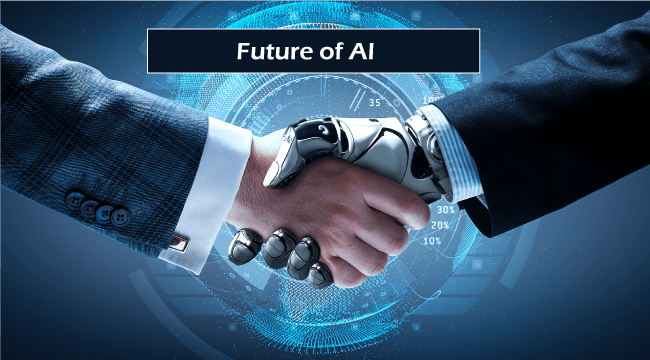
Artificial intelligence education is here to stay! Its presence in the classroom and schools will only grow, so jumping on board as soon as possible is essential. While we cannot foresee how artificial Intelligence will evolve in education, we may make certain assumptions based on its already employed. As AI technology improves, the way it is now employed will be fine-tuned and refined. For instance, pupils’ Learning via AI applications will grow more complex and thorough in analyzing data better and providing a more tailored experience for students.
Virtual reality games and software and AI appswill become more common in schools. Virtual reality may make learning more engaging and participatory. Science experiments might be conducted with these technologies, making the learning environment safer and more enjoyable for students. AI will be employed in schools to construct smart classrooms and buildings. We already have the technology to remotely manage things like thermostats, alarms, and lights via AI-powered apps. Let’s revolutionize the classrooms and make it safer for students. Streamline the administration powered with the AI.
Wrapping up
The presence of AI is all around us, but educators must embrace it and employ intuitive tools to motivate all pupils. Real-time, tailored student performance insights are revolutionary concepts that digitize the learning process. Artificial intelligence advancements have enabled computers to autonomously assess pupils, offer feedback, and change their educational path. The proper usage of technology paves the path for Improving lesson preparation, introducing new teaching methods, making your courses more accessible, and even flip classrooms when required.
